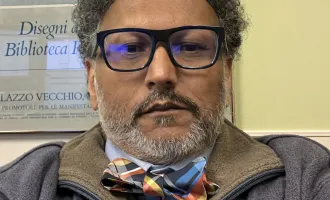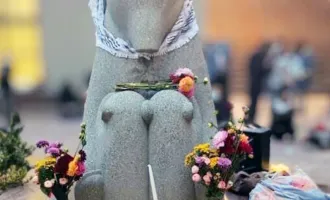
Photo by Tatiana Zanon on Unsplash
When I Was A Young Man Like You
I do not think a person of sensitivity can inhabit graduate school for long. It isn’t because of the intellectual challenge or uncertainty. It is because of the extreme power differential that exists largely unchecked between the PI and student (and, to lesser extent, PI and everyone else in the lab), the culture this sets up, and the way it can take away your voice.
This does not happen to everyone, and it won’t make sense to everyone. I’ll write from personal experience.
When I started graduate school, I felt from PI, postdocs, and senior students a constant downward pressure defining my relative position. They said, As you become more mature and self-aware in graduate school, you’ll realize you’ve overestimated yourself all your life, or As you take on real responsibilities, you will learn how to manage your time.
Once, I observed as a senior student performed a procedure and then left the top off the formaldehyde waste container. I had never seen the procedure before and I assumed this was standard protocol.
Later, another senior student came to tell me that I had forgotten to replace the waste container top. I told him that we—the graduate student who was training me and I—must have forgotten.
I said sorry and I thanked him, thinking he had already replaced the top, but he said, so, are you going to put it back on?
He followed me silently to the hood, watched me put on gloves and a mask, and stood directly behind me as I put it back on. I thanked him again, and he stared back at me and walked away.
While any one of these thousands of comments or events alone can be defended as misguided teaching attempts, their cumulative effect over years is to locate you on a hierarchy, and justify doing so based on a collapsed, biased, and often inaccurate measure of experience.
I did not learn anything about time management while in graduate school that I didn’t already know from packing up all my things and switching weekly for ten years between my divorced parents’ places, from supporting my mother’s health and making dinners for my little sibling, and meanwhile doing the work of growing up.
These comments and actions, insofar as they are endemic, suggest that academic culture operates under a model of replicant others, with those at earlier in training equivalent to regressed version of ourselves.
In this model, we all travel the same path, and that the senior is further along that path. This model denies or invalidates experiences outside of the experience of the PI or superior, undercutting any other gestures toward open-mindedness or inclusivity.
What can I make of a mentor telling me that I ought to project more confidence in my speaking by being more dynamic and then telling me that I should keep in mind when making the author list for my manuscript that we all overclaim credit?
He is a white man; I am not. Many of us overclaim credit, but not all of us, and probably not all the time.
I realize that much of what he is saying is not for me, which is a familiar experience, but more importantly I sense that he does not realize this, or its connection to our recent conversations about systemic bias.
When a senior is confronted with facts that suggest the junior is not on the same path – is a parent, owns a house, has a medical degree – the senior stumbles, backtracking mentally over all the assumptions made in earlier conversation.
Why does this scramble the brain? It is the reveal moment in Undercover Boss, the contrived tv show in which a company’s high-up executive poses as a low-level employee.
The PI, postdoc, or senior student expected to be dealing with a generally inferior other, but it turns out the student drives a Tesla and her father won the Nobel prize last year. If these realizations would spur you, the mentor, to greater respect, it might mean you didn’t feel enough before.
If the context change makes the generous dispensation of advice suddenly feel foolish, maybe it is because your view of yourself and your trainees in the lab inherits structure from our broader social hierarchy.
From six years of field work, I’d guess that more people could tolerate being students, students would be happier, more of them would stay in science, and science would benefit from retaining this diversity of talent, if it did not require acceptance of a position in this hierarchy.
When I mentor students and technicians, I remember they are all undercover bosses. Every single one has talents I do not, is an expert in something I will never master.
Critically, the earlier in training someone is, the least they have been pushed through the sieve that sorts by race and sex and money.
Statistically, they are the most likely to have the diversity of identity and experience that America is increasingly conscious of and curious about.
The people at the top with the most power, the PIs, are statistically the least qualified on these subjects.
If you, the PI, primarily understand and relate to trainees as regressed replicants of yourself, you may be less comfortable in situations where this is less true.
This could result in an unconscious preference for people who make you more comfortable because they are like you, or because their difference does not threaten your model (for example, of how a white woman versus an Asian male student should behave).
That wouldn’t be a problem, but for the permissive conditions of the way science is done in large, successful labs now.
Imagine a PI who doesn’t know how hard the scientific problems being addressed are, doesn’t know how many hours their students work, and can’t tell whether a solution is truly novel and inventive or something that can be looked up in a standard textbook in an adjacent field (imagining this should not be very challenging).
How can they distribute credit, some in the form of opportunity, to lab members? What can they use but the social and emotional cues? Their own biases enter.
This can ruin graduate training, waste years, and wreck lives. It turns talented scientists toward other work.
As scientists, we have not dedicated our lives to social justice and we are not going to be the ones who stop the police from murdering black people.
But as long as we are making changes in our own domain, something I will continue to remind myself is that everyone is on a unique trajectory, our roles in research are just one projection, and that we can be healthier and more productive if we can see others more accurately.
We can invite to formal seminars exclusively people of color, build majority-female labs, read Ibram X. Kendi, Audre Lorde, and Cathy Park Hong, and listen all summer to the stories of different others, but if we aren’t willing to dismantle the mental model in which personal experience is primary and exclusive, the change will only be superficial.


